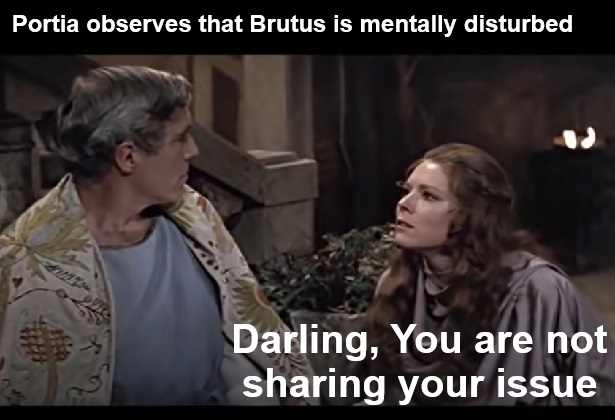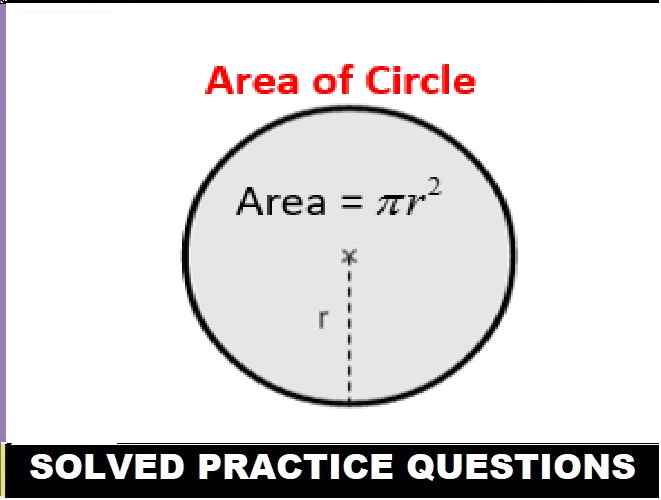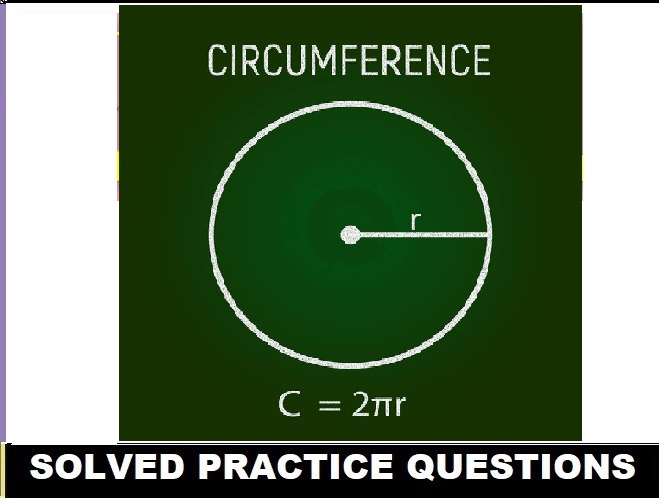Julius Caesar Act-2 Scene-1 Context Questions: ICSE Class 9 English Drama. Context Questions are very common in English Drama because it help in the evaluation of skill among students . Visit official website CISCE for detail information about ISC Board Class-9 English.

Julius Caesar Act-2 Scene-1 Context Questions: ICSE Class 9 English Drama
| Board | ICSE |
| Subject | English |
| Class | 9 |
| Book Name | Julius Caesar (workbook) |
| Session | 2024-25 |
| Topics | Act-2, Scene-1 |
| Question Type | Context Questions |
Evergreen Workbook Solutions
(Context Questions Act-2 Scene-1 of Julius Caesar)
Que: Read the extract given below and answer the questions that follow
BRUTUS- it must be by his death, …. …… ….. that might change his nature”.
Que-1: Where is Brutus? Why is Brutus unable to sleep?
Ans: In the night Brutus is alone in his orchard, restlessly. He is unable to sleep because his mind is in turmoil over the idea of assassinating Julius Caesar, which Cassius has convinced him is necessary.
Que-2: Whose death is Brutus speaking about? What are Brutus’ fears about the change in ‘his nature’?
Ans: Confuse Brutus is thinking deeply about whether Caesar must be killed. He fears that if Caesar is crowned king, it will transform his character and make him proudly and tyrannical.
Que-3: What danger does Brutus foresee if the person is crowned king? What does this reveal about Brutus’ character?
Ans: Brutus sees danger if allowing Caesar to become an authoritarian ruler. He believes Caesar’s power will corrupt his moral character. This reveals Brutus’ strong principles.
Que-4: What examples does Brutus cite to express his fears? Mention any two.
Ans: Brutus cites with the examples of a serpent hatching from an egg and becoming dangerous, and poisonous adders only coming out when the warm sun shines. Both examples show normal things becoming fatal when conditions change.
Que-5: Who enters after the extract? What does he bring to Brutus? Where had he found the object?
Ans: When Brutus is in deep dark thoughts, his servant Lucius enters the scene. Lucius says he found the sealed letter and gives to Brutus while searching for a flint to light the candle by the window in study room.
BRUTUS- this is good. Go to the gate, …… or a hideous dream
Que-1: Explain the lines
Ans: These line describes the surreal feeling of the time between making the fateful decision to commit a horrible act and actually carrying it out – it feels strange and nightmarish, almost unreal.
Que-2: Who come to meet Brutus? How have they disguised themselves?
Ans: All conspirators including Cassius, Casca, Decius Brutus, Cinna, Metellus Cimber, and Trebonius come to secretly meet Brutus at his home. They have cleverly disguised their identities by pulling their hats down over their ears and covering the lower halves of their faces with their cloaks.
Que-3: What does Brutus say about conspiracy? What advice does he give?
Ans: Brutus remarks that conspiracy should only creep around at night since it is so evil, saying “O conspiracy, sham’st thou to show thy dangerous brow by night?” He advises them to hide their true, dangerous intentions behind friendly smiles and courtesy.
Que-4: What is the figure of speech used by Caesar to describe conspiracy? Explain.
Ans: The figure of speech used by Brutus uses to describe the unnaturalness and wickedness of conspiracy as personification.
BRUTUS- no, not an oath ….. ……. ….. hence to his idle bed.
Que-1: Who suggests that an oath should be taken? What does this show about the person’s foresightedness?
Ans: As per Cassius suggestion the conspirators should all take a formal oath together, binding them in their plot to kill Caesar. This shows Cassius’ greater political smartness to handle the plan safely and successfully.
Que-2: Who according to Brutus swears an oath?
Ans: Brutus argue that only weak, cowardly men swear oaths. He believes true Romans and noblemen should keep their word without requiring an oath.
Que-3: Why does Brutus feel that swearing an oath is not necessary?
Ans: According to Brutus that taking an official oath is unnecessary because their intentions are honorable, so their inner virtues should be enough to commit them to the cause. He thinks an oath is only for dishonest men whose word alone cannot be trusted.
Que-4: What is the next instance in which Brutus contradicts Cassius? In what way does this Brutus’ blunder surface in the play?
Answer: Once again more Brutus ignores Cassius’ advice when deciding whether to kill Mark Antony along with Caesar. Unfortunately, this fateful decision proves to be a grave blunder, as Antony uses his funeral oration to successfully turn the public against Brutus and the conspirators.
Que-5: How does Cassius show his farsightedness regarding the killing of Mark Antony? How correct was Cassius in his assessment of Mark Antony?
Ans: Cassius knows that allowing Mark Antony to live would changed the theme in previous version. He arguing that Antony would use his influence with the Roman to undermine the conspirators. This demonstrates Cassius’ a good judgment and political maturity.
DECIUS- shall no man else be touched but only Caesar?’ …………. We shall find of him a shrewd contriver.
Que-1: What does Cassius suggest? Why does Brutus contradict him? What are the reasons given by Brutus not to kill Mark Antony?
Ans: Cassius knows well that Caesar feel great affection for Antony, Hence he suggests that they should kill Antony also with Caesar to avoid any future problems. However, Brutus reject the proposal arguing that killing Antony would seem too bloody and cruel.
Que-2: How does Brutus try to justify that their act will appear ‘too bloody’?
Ans: Brutus justify that only killing Caesar, their main target, will make it appear they acted out of principle and honor, not vicious malice. Killing Caesar alone will send the message that they had noble, measured motives.
Que-3: What is Brutus’ assessment regarding Mark Antony? How sound is his judgement? Give reasons.
Ans: Brutus reject saying that Antony as merely “a limb of Caesar” who poses no threat without the “head” Caesar to guide him. He underestimates Antony’s abilities and influence, naively assuming removing Caesar will render Antony harmless. This judgement proves fatal for conspirators.
TREBONIUS-This time to part. …. …… opinion he held once.
Que-1: What are Cassius’ fears as to whether Caesar will come or not? What has given rise to this fear? State how Decius can “over sway” him
Ans: Cassius expresses doubts about whether Caesar will even come to the Senate that day. He says Caesar has grown very superstitious lately, so the terrible storm and other supernatural omens may keep him at home. However, Decius promises to use flattery and ego-stroking to ensure Caesar will come despite the warnings.
Que-2: Another person’s name is mentioned after the extract. Who is he? Why is he not suitable to be a part of the plot? What is Brutus’ reaction to this proposal?
Ans: the conspirators discuss whether they should involve Cicero in their plot . Ultimately they decide against including the famous orator and philosopher because he was not involved from the beginning so would not fully understand their motivations. Brutus rejects the idea of bringing Cicero in at this late stage.
Que-3: What advice does Brutus give to the others before parting? How does he show his affection towards Lucius?
Ans: Brutus advises the conspirators to hide their intentions and look cheerful so as not to arouse suspicion. He shows affection for his servant Lucius by addressing him fondly as “boy” and telling him he can keep sleeping soundly without worries or nightmares.
Que-4: Who enters the scene a little later? What does the person say to Brutus?
Ans: Portia enters the scene asking Brutus to confide in her and explain why he has been so troubled and distant lately.
PORTIA dwell I but …….. ……… not his wife
Que-1: How does Portia assess Brutus’ ill health? Is she correct in her assessment? Give reasons for your answer.
Ans: When Brutus claims that he is simply ill, Portia observe through this and conclude that it is not physically but mentally disturbed by some issue. She claims that he is keeping some secret from her. His recent strange actions indicate an inner turmoil rather than physical.
Que-2: How does Portia show her love and submissiveness to Brutus? What fears does she voice to Brutus?
Ans: Portia show her love and affection to Brutus by putting kneels before Brutus and desperately pleads with him to share his troubles with her. She is deeply concerned about being excluded from his confidence and not being able to help.
Que-3: How does Portia prove to Brutus that she is stronger than any other woman?
Ans: Portia reveals a wound on her own thigh and was able to bear the pain stoically. This shows her strongness both mentally and physically.
Que-4: Who intrudes the conversation of Portia and Brutus? What does Brutus promise Portia?
Ans: Portia and Brutus are interrupted by Lucius bringing in an unexpected visitor, Ligarius. Brutus tells Portia they will continue their discussion and he will reveal all his secrets soon.
Que-5: Before this extract, Portia appealed to Brutus in such a way that she part played on his emotions. Which of her reasoning has appealed most to you? Give reasons for your answer.
Ans: Portia’s dramatic demonstration of stabbing her own leg proves her determination, her emotional appeal is more powerful. Highlighting her duty as Brutus’ wife and pleading for his trust based on her love and loyalty provides a compelling moral argument.
— : End of Julius Caesar Act-2 Scene-1 Context Questions: ICSE Class 9 English Drama : —
Return to : ICSE Class 9 Drama Julius Caesar Workbook Solutions
thanks
Please share with your friends if helpful


